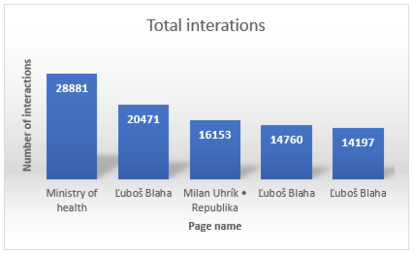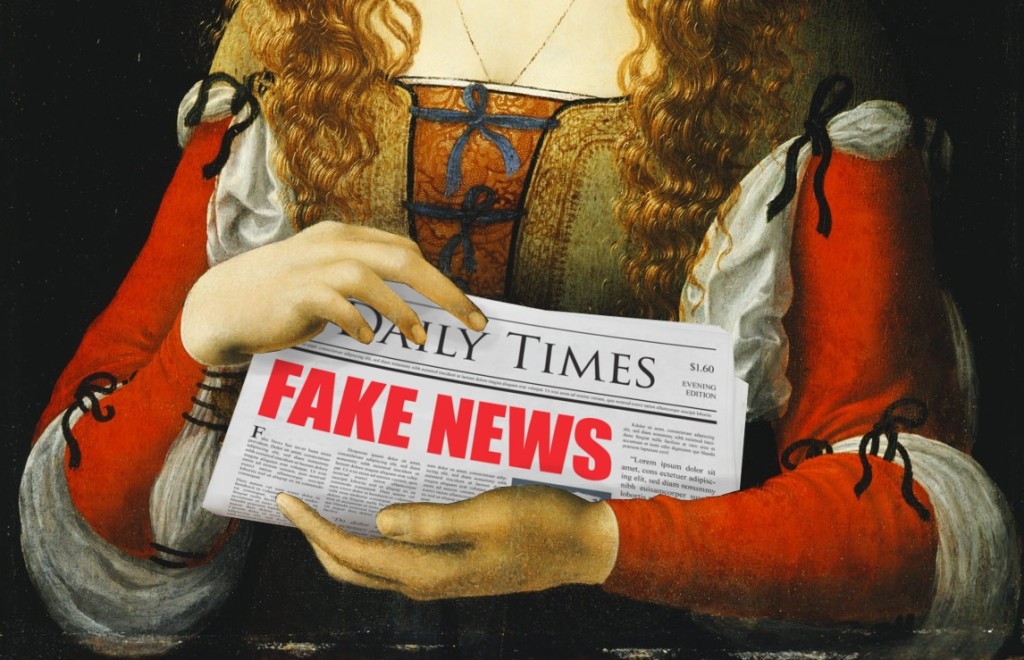As in the weeks prior, this week Infosecurity.sk also presents an overview of disinformation trends that have been on the rise in the past two weeks:
1. Hundreds of people gathered outside the Slovak parliament to protest against new pandemic measures. The protesters attempted to storm the Slovak parliament and had to be dispersed using tear gas.
2. Several MPs, who are known for spreading disinformation narratives, have backed the protestors.
3. The protests quickly became a trending topic on social media, and disinformation actors published a series of posts praising the event and attempting to mobilize the public for further demonstrations through a series of false narratives and allegations.
4. With their fabrications and populist language, the disinformation actors succeed in polarising the public and attracting a great deal of public attention, which is backed by data from the CrowdTangle analytic tool.
5. With poor strategic communication, the spread of half-truths, disinformation narratives and hatred on social media will likely lead to further physical manifestations of civic discontent.
Protesters Opposed to Pandemic Measures Attempt to Storm the Slovak Parliament
After the recent protests against Slovak doctors and experts, the government has now become the latest target in a series of anti-vax/anti-pandemic measures protests. Hundreds of people gathered outside the Slovak parliament to voice their discontent with new pandemic measures. The protests were related to an extraordinary vote on new vaccination-based pandemic measures, specifically an amendment to allow the digital Covid Pass to be taken into account when designing such measures.
The Health Ministry proposes using the EU Digital Covid Pass as an alternative in the national Covid automat alert system. This means that vaccinated people could use it as an alternative to a negative PCR test when entering certain premises, including restaurants.
However, the protesters, who reject Covid-19 vaccination, object that the proposed amendment will allow the government to draft different measures for the people who are vaccinated and those who are not.
The protests began on Friday (July 23) and lasted for three days. Throughout the three days, protesters repeatedly spoke out against vaccination and testing, and criticized other measures, such as the wearing of protective masks, chanting slogans such as “Gestapo” and “high treason”. The protesters gradually blocked the entrance to the building and demanded to be let in. Many of them were not wearing masks or face coverings. Police opted to use tear gas to disperse the crowd. One police officer was injured during the protest.
Several MPs, who are known for spreading disinformation narratives, have backed the protests. The leader of the far-right ĽSNS Marian Kotleba, another far-right MP Tomáš Taraba, and SMER-Social Democracy MP Ľuboš Blaha appeared before the crowd and addressed the protesters with words of encouragement.
The protests and the disputed law quickly became a trending topic on social media. A simple search for the keyword “covid” in the CrowdTangle analytics tool shows the most popular Covid-19 related Facebook posts of the last 14 days.

The graph above shows the top 5 posts for the keyword “covid”, ranked by their total number of interactions gained (likes, comments, and shares).[1] Apart from a vaccine infographic published by the Health Ministry, which ranks first, all other posts that inform about the recent protests are from MPs known for spreading malicious content.
This illustrates once again that on Facebook the topic of Covid-19 continues to be dominated by disinformation actors. Their top posts alone have collectively gathered over 65,000 interactions on Facebook, though their actual reach is even greater.
Narratives of “Fascism”, “Vaccine Apartheid”, and “Pharma Lobbyists” Roam the Internet
The abovementioned posts praised the protests and attempted to mobilize the public for further demonstrations through a series of false narratives and allegations. The posts targeted coalition MPs, President Zuzana Čaputová, the council of experts, and others who spoke in favour of the vaccination campaign. Phrases such as “vaccine apartheid”, “pharma lobbyists” and “fascists” have become an integral part of the posts’ narratives.
One of such narratives is the fabrication of forced injection of an “experimental vaccine”, which Blaha accuses the state of making. Not only is vaccination voluntary in Slovakia, but citizens also have the option to choose the manufacturer of the vaccine, which has been approved by the relevant state authority. Not to mention that the claim that the vaccines are experimental is also false.
Blaha’s posts further attempt to appeal to the public’s fear of closed borders by pointing to the recent closure of certain border crossings, claiming that the government has “closed the borders to the more than half of the population that is not vaccinated”.
While it is true that some border crossings are temporarily closed, this does not mean that the entire border is closed to the unvaccinated population, as the borders are open to anyone who meets the conditions set by the government to limit the spread of the new variant of the Coronavirus.
Other MPs have sought to take advantage of different narratives. The new slogan of Milan Uhrík’s far right Republika party’s anti-campaign is “Hands off our children” which attempts to score political points by exploiting the polarising issue of child vaccination to further undermine confidence in vaccination by spreading unsubstantiated claims about vaccination tests on children.
The Slovak council of experts responded by publishing a post in which it urged politicians not to misuse the pandemic for political purposes. Using relevant data, the council warned that such behaviour could have serious consequences in the third wave that is certain to come, further stating that “voters of all political parties can be victims of the pandemic”.
It seems, however, that their appeal falls on deaf ears. On Facebook, their post gained less than 6 000 interactions, which dwarfs in comparison with the far greater reach of the posts made by the disinformation actors.
The unfortunate fact remains that the disinformation actors, with their fabrications and populist language, succeed at polarising and stirring up negative emotions. With poor strategic communication, it is very likely that the spread of half-truths, disinformation narratives and hatred on social media will lead to further physical manifestations of civic discontent.
[1] CrowdTangle is a tool from Facebook to help follow, analyse, and report on what’s happening across social media. https://www.crowdtangle.com. The data from CrowdTangle is based on the extensive list of sources, however, we might have missed some relevant for this particular case.
Written by:
Matej Spišák – a Research Fellow at STRATPOL – Strategic Policy Institute in Bratislava and Editor-in-Chief at Infosecurity.sk
Denis Takács – an Analyst at STRATPOL – Strategic Policy Institute in Bratislava
The article was originally published at: https://www.freiheit.org/central-europe-and-baltic-states/infosecuritysk-bi-weekly-report-emerging-disinformation-trends-7
Project Infosecurity.sk organized by STRATPOL – Strategic Policy Institute and Slovak Security Policy Institute, which is supported by the Prague office of the Friedrich Naumann Foundation for Freedom, continuously monitors the activities of both Slovak and foreign disinformation actors, but focuses mainly on the former. The project activities are built upon daily monitoring of emerging disinformation, hoaxes, and conspiracy theories in the online information space. This approach allows the analysts to identify disinformation posts and narratives that resonated with the public the most, as well as to find out where they originated, and how they spread and evolved on social media. The report takes the form of a bi-weekly summary of arising trends in the spread of malicious information content online. Based on that, Infosecurity.sk can warn the public about emerging and current trends in the field of disinformation, manipulation, and propaganda.



